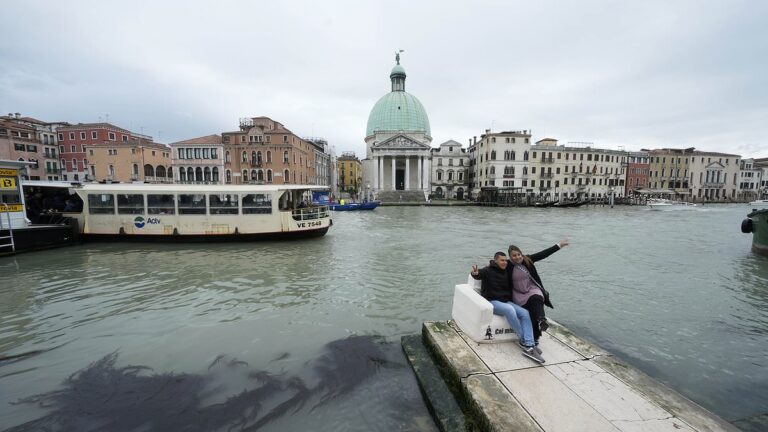Tourists visiting Venice at peak times currently have to pay a £4-a-day tourist tax, which city authorities claim is designed to control the numbers coming into the city.
Venice’s mayor has introduced strict new rules to limit the number of visitors to the Italian city, a UNESCO World Heritage site famous for its waterways.
Currently, tourists entering Venice must pay a £4 per person tourist tax and large cruise ships are banned from the port.
Authorities now ban tour operators from using loudspeakers and limit the number of people on private tours to 25.
It is believed that these new regulations will reduce the impact of over-tourism.
While only about 60,000 people live in Renaissance City itself, the region is home to around 250,000 people.
Police have clashed with protesters in Venice following the introduction of a £4-a-day tourist tax. The city, with its 15 canals, is suffering from excessive tourism, which is damaging architecture. The tax was introduced in April to provide the city with additional revenue to limit the damage caused by over-tourism.
Massimo Cacciari, who served as mayor from 1993 to 2000 and 2005 to 2010, stressed that tourists already “pay all the fees” and said he “calls on nobody to pay” the 5 euro (4.30 pounds) entrance fee which comes into effect on Thursday.
He noted that day-trippers already pay “three times as much as residents” for the city’s public transport, and every visitor contributes to the longevity of Venice’s restaurants and museums.
In his scathing comments, Cacciari added that he would like to see city officials “justify in court the legitimacy of imposing an entrance tax on the city.”
“What are they going to do? Stop people from moving, send in the police and ask for everyone’s documents?” he told the Adchronos news agency.
Venice has become the first city in the world to impose an entrance fee on day-trippers, aiming to reduce the numbers of short-term visitors who cause unmanageable crowds at peak times.
The “tourist tax” has been controversial, with several Italian residents’ committees and associations planning protests to mark its introduction, with representatives arguing that the fee will only tarnish the city’s social image without solving any underlying problems.
Officials hope the plan will help manage the flow of some 30 million tourists who are drawn to the city’s historic and romantic canals each year.
The scheme will only be in place during the 29 busiest days of the calendar year.
People staying overnight in a hotel are exempt.
Residents, commuters, students and children under 14 will also be exempt from the fee.
Day trippers will have to buy tickets online, for which they will be issued with a QR code, and officials will carry out random checks to ensure cooperation and have the power to issue fines of between €50 and €300 if found without the code.

